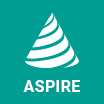SISTER
/SISTER is a phase-2, prospective, randomized, placebo-controlled, blinded, dose-finding trial that aims to determine the safety and preliminary efficacy of TS23. TS23 is a monoclonal antibody against the alpha-2 antiplasmin (α2-AP), in acute ischemic stroke.
The study will be conducted at up to 50 U.S. sites and enroll 300 adults (>18 years) with acute ischemic stroke who have a baseline NIHSS >6 and are able to receive study drug within 4.5-24 hours after stroke onset (or last known well) who have evidence of core-penumbra mismatch on baseline perfusion imaging and are not planned for endovascular intervention or standard of care intravenous (IV) thrombolysis.














